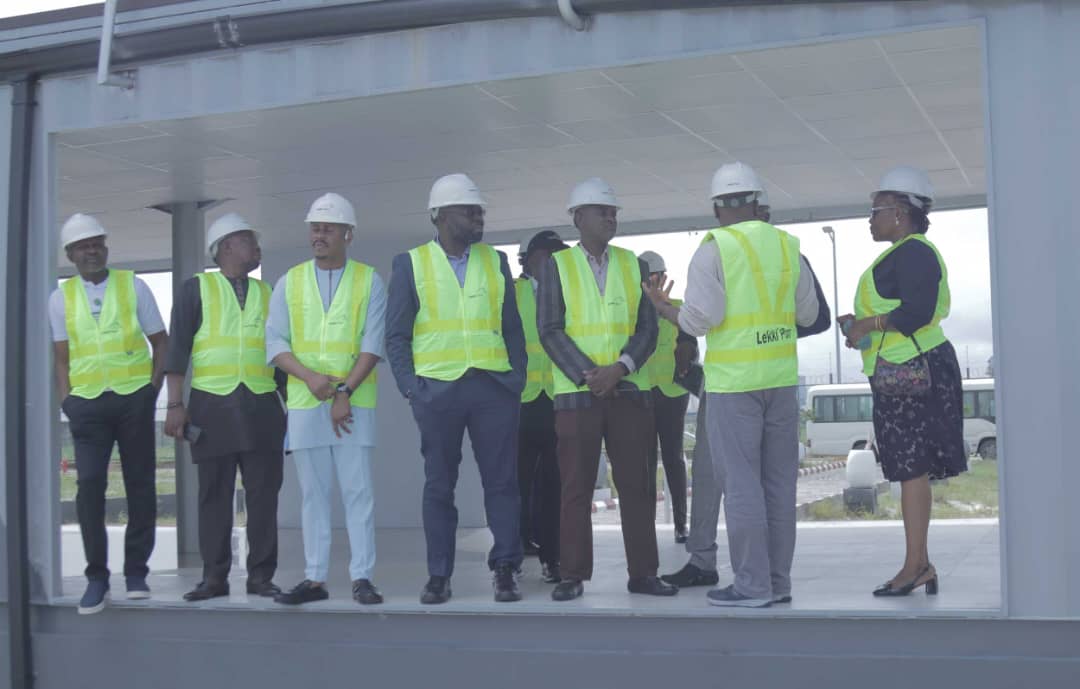
By Dooyum Naadzenga
As part of efforts to enhance maritime safety, the Nigerian Safety Investigation Bureau (NSIB) has initiated a significant overhaul of its marine casualty investigation structures.
Director-General and Chief Executive Officer, Capt. Alex Badeh Jnr, who initiated this pioneer work, had set up a 5-man committee chaired by Engr. Abdullahi Babanya – Director of Transport Investigations (DTI), NSIB, tasked with drafting the comprehensive regulations.
These regulations align with the International Maritime Organisation (IMO) Casualty Investigation Code while addressing the unique challenges of investigating incidents on Nigeria’s inland waterways and oceans.
The NSIB Act of 2022 mandates the Bureau to investigate accidents across all modes of transportation, including air, marine, rail, and others.
This holistic approach underscores the importance of safety in Nigeria’s transportation sector, particularly as the nation grapples with frequent maritime accidents that pose risks to both human lives and economic stability.
The active involvement of the committee highlights the NSIB’s commitment to preventing further tragedies and ensuring accountability within the maritime industry.
Over the past six months, the committee engaged in an exhaustive process of drafting regulations, which included visits to harbours and jetties, extensive consultations, and deliberations with industry stakeholders.
This collaborative effort aimed to gather insights and perspectives that would inform the new regulations. Technical visits to operational environments in the maritime sector, including the Lekki Deep Sea Port and various jetties in Lokoja and Ganaja, in Kogi, Buruku and Agatu in Benue, Baro in Niger and other locations along Nigeria’s inland waterways, provided invaluable firsthand knowledge of the conditions affecting safety and operations.
Capt. Martins Avaan, the Technical Adviser to the DG/CEO of NSIB, who spoke with the Daily Times, commended Capt. Badeh’s leadership and vision. He explained why the DG/CEO has prioritised this timely rule-making, as the regulations are drafted to ensure the recommendations are S.M.A.R.T. and implementable by responsible Government agencies, including NIWA, NPA, NIMASA, NOSRA, NSC, and concerned operators, as well as all maritime sector players.
Captain Avaan emphasised that the marine casualty investigation regulations are essential for addressing the alarming frequency of vessel accidents on Nigeria’s waterways and oceans, saying, “With the right legal structures and procedures in place, investigations can be conducted thoroughly, allowing for lessons learned and recommendations to be implemented”.
According to him, “This pivotal step aims to stem the tide of disasters and promote safer navigation in both inland and coastal waters.”
“The regulations will not only enhance the investigative processes but also foster a culture of safety within the maritime sector.” He added, “By ensuring that investigations are carried out with the highest standards of professionalism and transparency, the NSIB aims to boost public confidence in the nation’s maritime safety protocols.
This initiative is critical, as it sends a strong message to all stakeholders—operators, regulators, and the public—about the importance of adhering to safety standards and regulations. ”
As the committee finalises the draft regulations, the focus remains on creating a framework that is both robust and adaptable.
The complexities of the Nigerian maritime environment necessitate regulations that can evolve with changing conditions and emerging challenges.
This flexibility will be key in addressing the diverse nature of incidents that can occur, from minor mishaps to major disasters that require comprehensive investigations.
Moreover, the engagement with local communities and stakeholders during the drafting process ensures that the regulations are not only effective but also relevant. By incorporating local knowledge and experiences, the NSIB is better positioned to address the specific needs of the Nigerian maritime sector. This community-centred approach is vital for fostering collaboration and ensuring that all voices are heard in the quest for safer waterways.
Captain Alex Badeh Jr.’s initiative for the NSIB to develop maiden marine casualty investigation regulations marks a pivotal step towards enhancing maritime safety in Nigeria. With a clear commitment to aligning with international standards and overcoming local challenges during investigations, the Bureau, led by Badeh Jr., is poised to lead the way in transforming the maritime safety landscape.
As the regulations are finalised, the hope is that their outcome in the form of accident investigation reports and recommendations will not only prevent future accidents but also serve as a foundation for a safer and more sustainable maritime environment in Nigeria.


